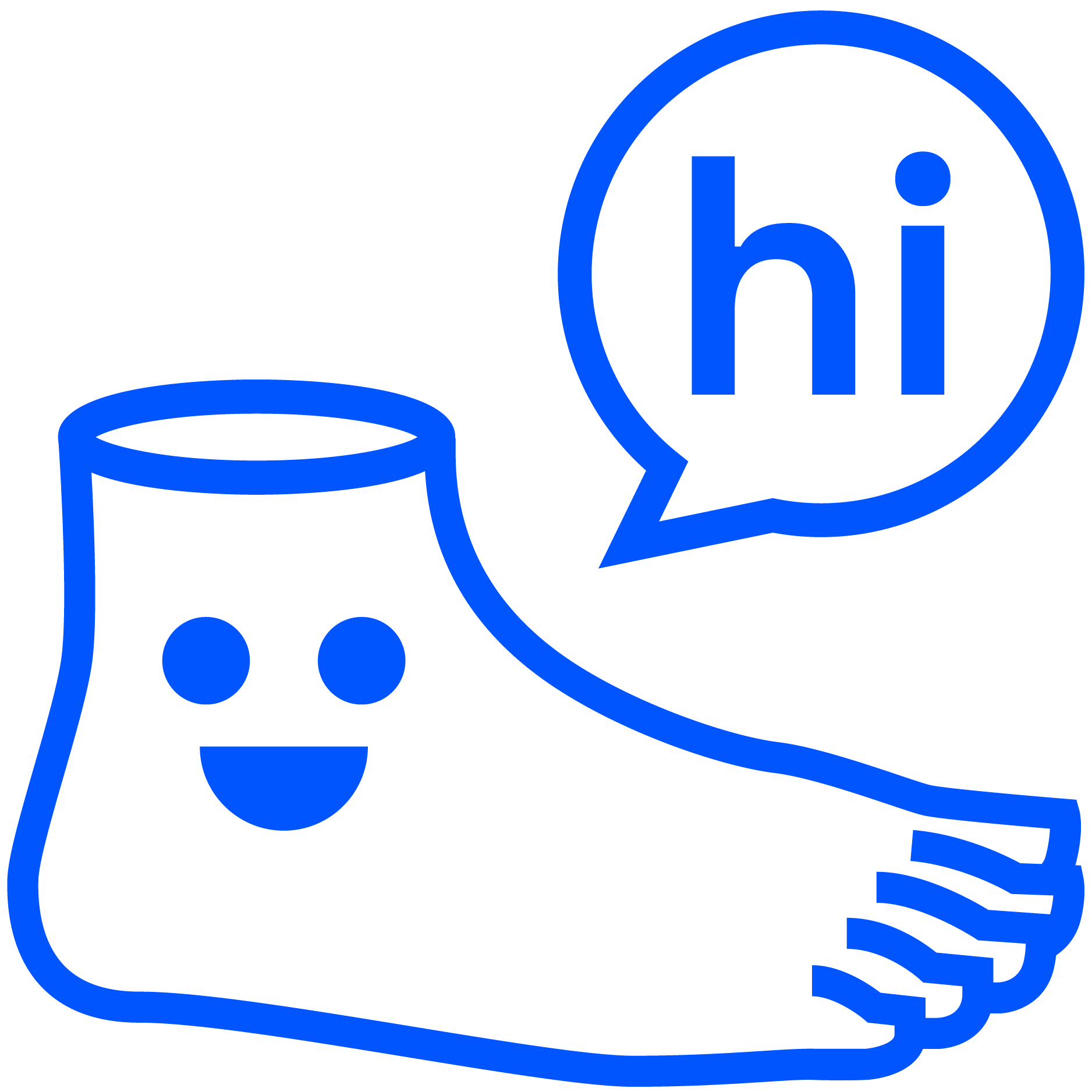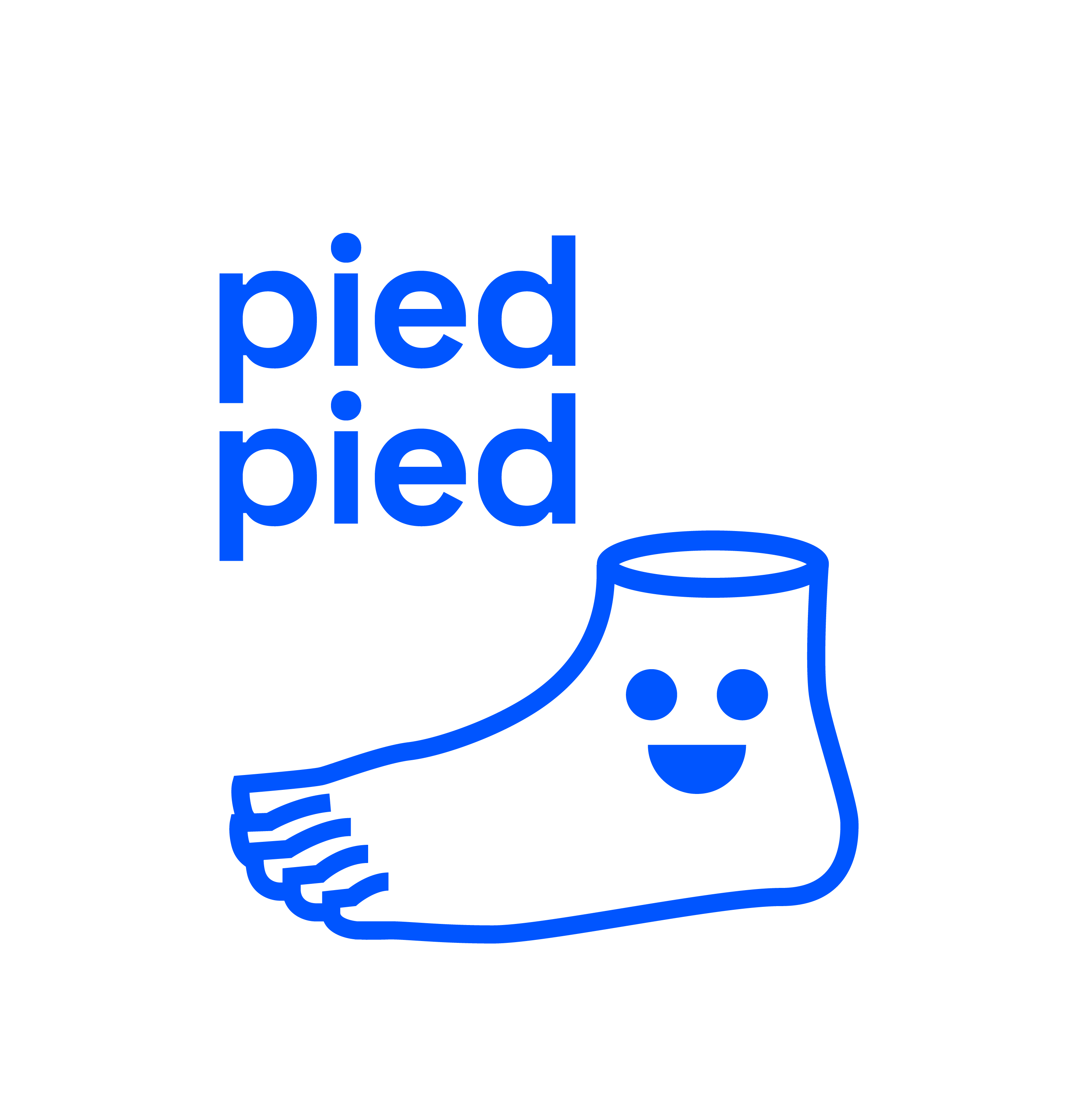Sammlungen – Archive des Lebens
With this exhibition the Zoological Museum in Kiel, Germany, aims to communicate their scientific work based on their own in-house collection. With the help of modern high-end technology but also relying on old collection data from the time of Karl-August Moebius (1825-1908) predictions about climate change can be made for instance.
One great challenge in the exhibition planning was the very narrow and long stretched room as well as the two big window openings in the ceiling. So the room was divided into a historical and a modern part to tell the whole story from data mining in the 18th century with the help of hand made glass instruments up to nowadays’ ultramodern DNA and MRI sequencing technologies.
The basic design idea was to create an atmosphere that enhances the feeling of looking at something very precious and also to attract a sense of becoming a scientist and explorer yourself. The dark hued walls dissolve the narrowness of the architecture and nestle the perfectly illuminated exhibits. Also the exhibition furniture was designed light and translucent so the eye could still freely wander.
I was responsible for the overall spatial exhibition design as well as the 3D simulations and the interaction design & programming of the touch display.
You can have a virtual tour through the room here: https://3d-tour.linsenspektrum.de/tour/zoologisches-museum-archive-des-lebens
(all photos by Linsenspektrum)
One great challenge in the exhibition planning was the very narrow and long stretched room as well as the two big window openings in the ceiling. So the room was divided into a historical and a modern part to tell the whole story from data mining in the 18th century with the help of hand made glass instruments up to nowadays’ ultramodern DNA and MRI sequencing technologies.
The basic design idea was to create an atmosphere that enhances the feeling of looking at something very precious and also to attract a sense of becoming a scientist and explorer yourself. The dark hued walls dissolve the narrowness of the architecture and nestle the perfectly illuminated exhibits. Also the exhibition furniture was designed light and translucent so the eye could still freely wander.
I was responsible for the overall spatial exhibition design as well as the 3D simulations and the interaction design & programming of the touch display.
You can have a virtual tour through the room here: https://3d-tour.linsenspektrum.de/tour/zoologisches-museum-archive-des-lebens
(all photos by Linsenspektrum)
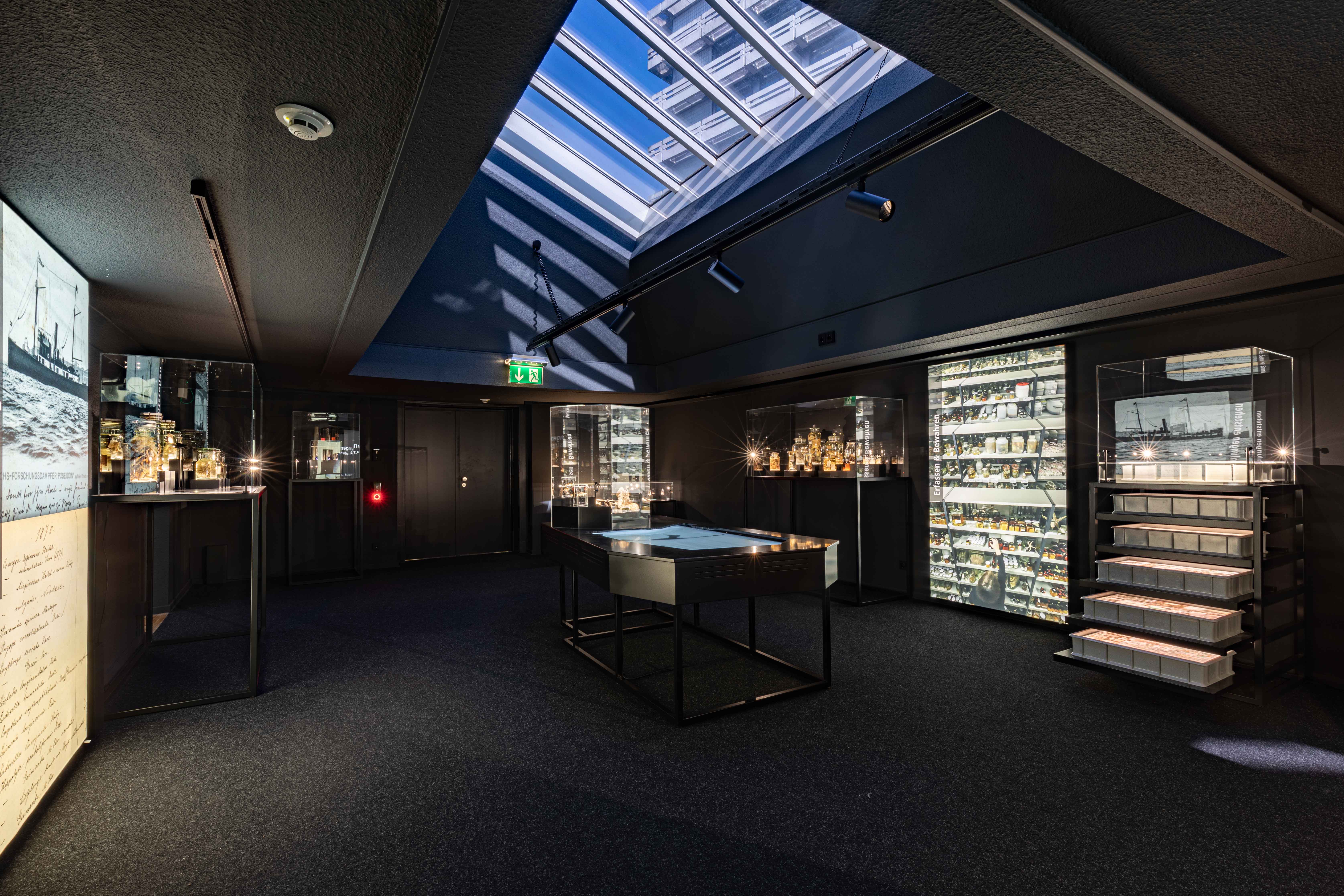



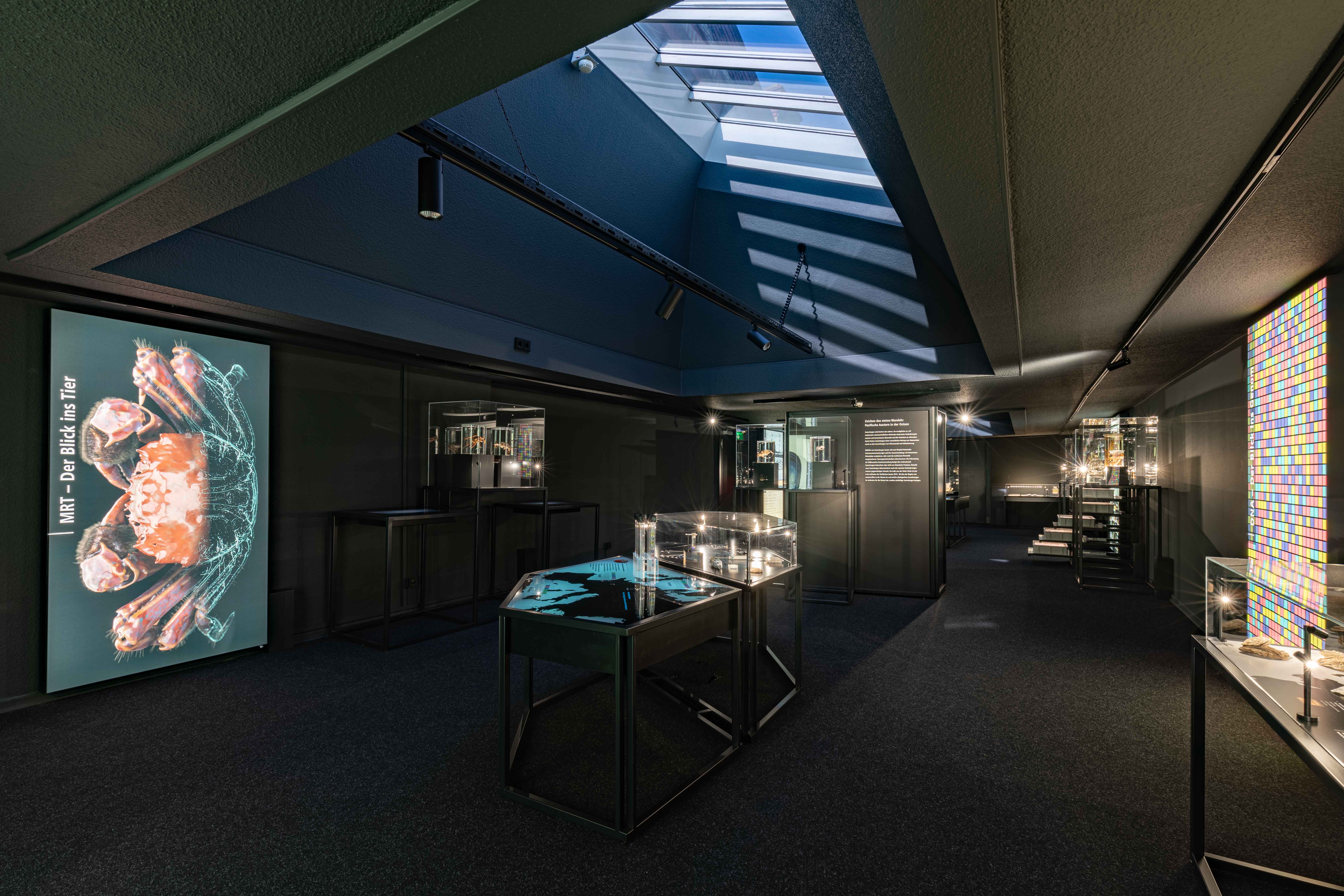

Screen recording (and 3D rendering) of the interactive screen which I designed and programmed in VVVV. Please note: I highlighted the touch feedback on the screen recording for demonstration purposes. On the actual exhibit you wouldn’t see the pink shapes.

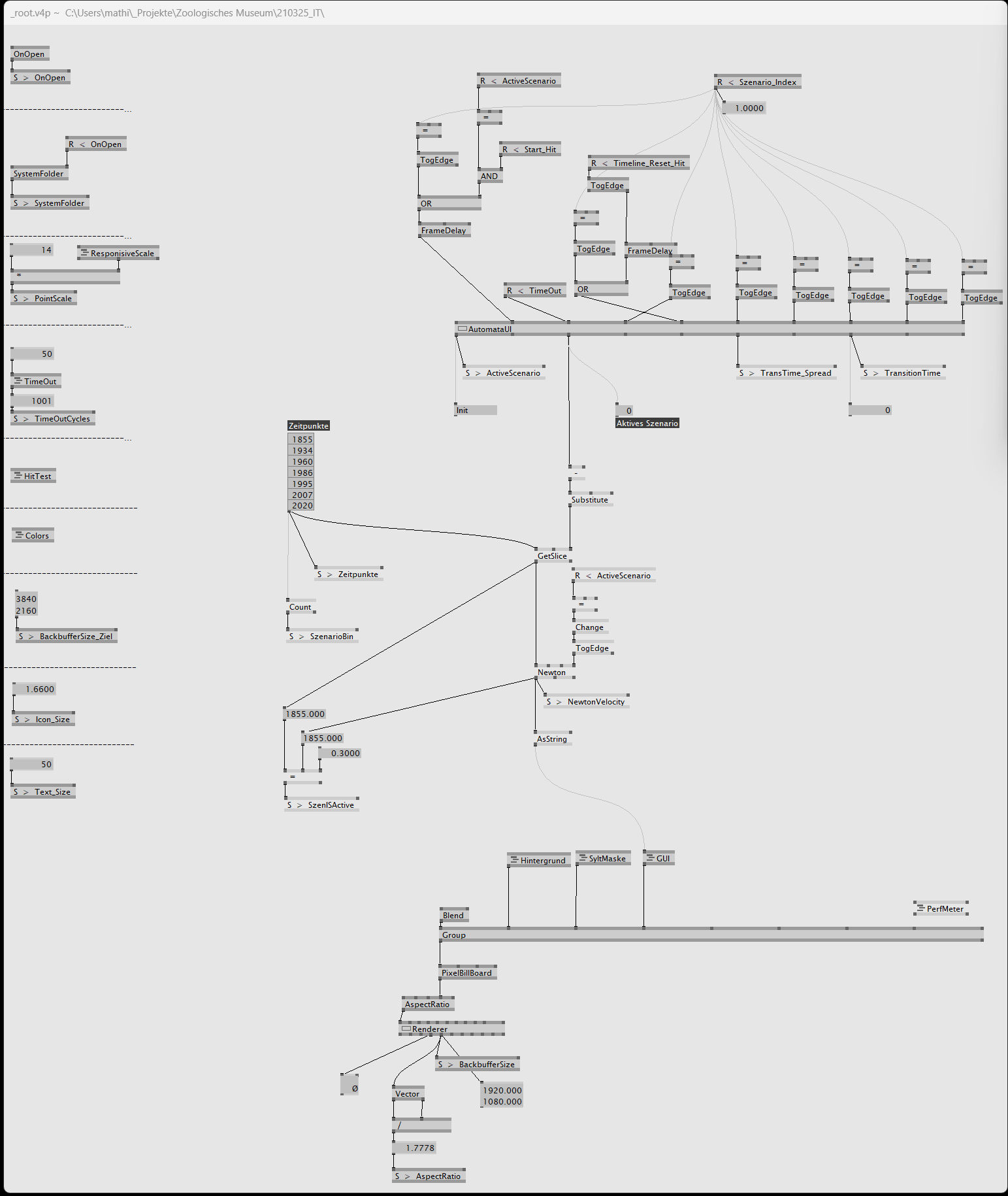 Main (”root”) patch in VVVV. I organized the program so I could access every important parameter as quickly as possible.
Main (”root”) patch in VVVV. I organized the program so I could access every important parameter as quickly as possible.
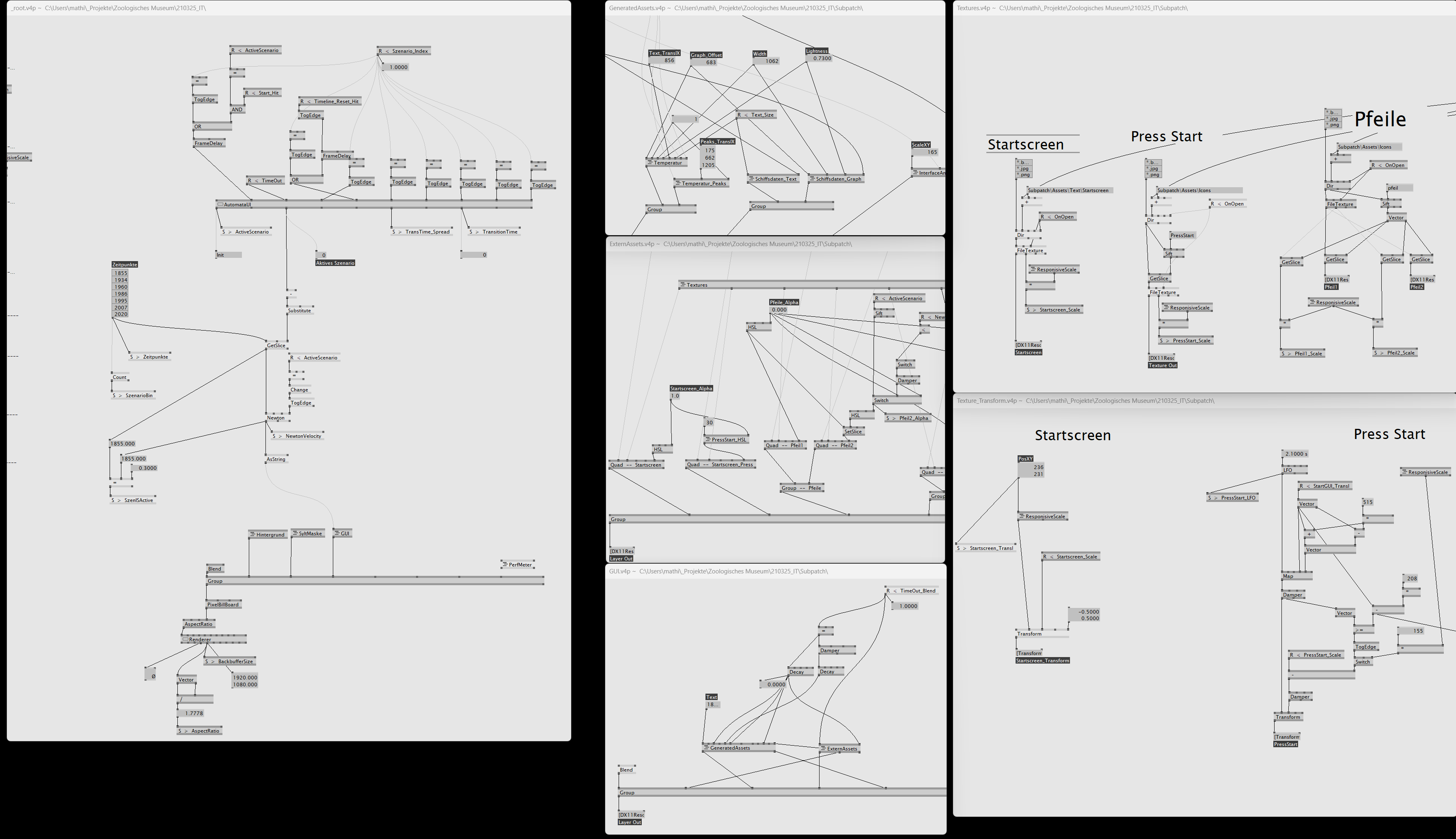 Root patch and the crucial sub-patches.
Root patch and the crucial sub-patches. 